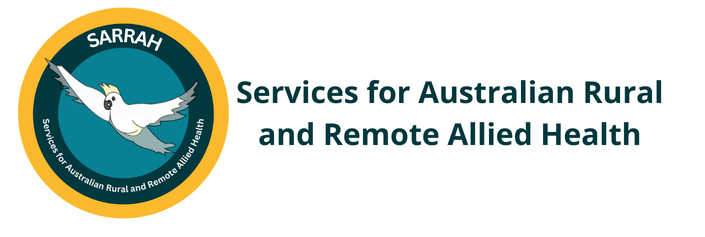Rural generalists provide services to a large range of consumers, for a wide breadth of clinical presentations, and usually work across the age spectrum and in a variety of healthcare delivery settings including hospital services, ambulatory & community care, primary healthcare, disability, and aged care.
Working in small teams and in inter-professional and inter-agency service models is common. This requires a range of non-clinical capabilities including collaborative practice, service evaluation and planning, leadership, education and training, community engagement and cultural safety.

Training Positions
The AHRG Training Position should require the professional to practice with a generalist scope of practice within their relevant allied health profession.
An AHRG Training Position is appropriate for an early career practitioner in one of the following health professions:
- Exercise Physiology
- Medical Imaging
- Nutrition & Dietetics
- Occupational Therapy
- Pharmacy
- Physiotherapy
- Podiatry
- Psychology
- Social Work
- Speech Pathology
Key elements of an Allied Health Rural Generalist Training Position:
- Formal education
A formal education program that supports the development of the clinical and non-clinical rural generalist practice requirements of the relevant allied health profession. This aim enhances the skills and capabilities of the allied health workforce to meet the challenges of delivering services in rural and remote areas.
- Structured supervision and support
Workforce policy and employment structures - such as structured supervision and support - that align to development requirements and facilitate progression from entry-level competency to proficient rural generalist in the relevant allied health profession and into extended scope roles where this is required by the service. This aims to improve the recruitment and retention of allied health professionals in rural and remote services with a focus on supporting the AHRG Trainee.
- Service development project
As part of their training, rural generalist trainees undertake a service development project that supports and engages the trainee to innovate and implement solutions to the challenges of delivering care across geographically dispersed and culturally diverse populations. This aims to support the growth of allied health service models that meet the needs of rural and remote communities.

To date, rural generalist training positions have been primarily established to support early-career allied health professionals attain the Graduate Diploma in Rural Generalist Practice while completing structured workplace-based activities including a service development project. Rural Generalists who have completed this training may be said to have achieved a level of competency in line with the standards outlined in accreditation documents held by SARRRAH through a licence agreement with Queensland Health[1].
Further work is required to develop program standards and requirements that recognised the “proficient” or “expert” rural generalist.
[1] https://www.health.qld.gov.au/__data/assets/pdf_file/0028/720496/ahha-accreditation.pdf
Acknowledgements
The Allied Health Rural Generalist Pathway initiative is a collaboration between the Allied Health Professions’ Office of Queensland (AHPOQ), New South Wales Ministry of Health, Northern Territory Department of Health, Western Australia Country Health Service and Department of Health Western Australia, Rural Support Service, SA Health, Tasmanian Health Service, Victorian Department of Health and Human Services, James Cook University, Queensland University of Technology and Services for Australian Rural and Remote Allied Health (SARRAH).
Further Information on the allied health rural generalist pathway and initiatives
Please contact SARRAH if you require more information on the allied health rural generalist pathway.
Email: [email protected]
Phone: 1800 338 061
